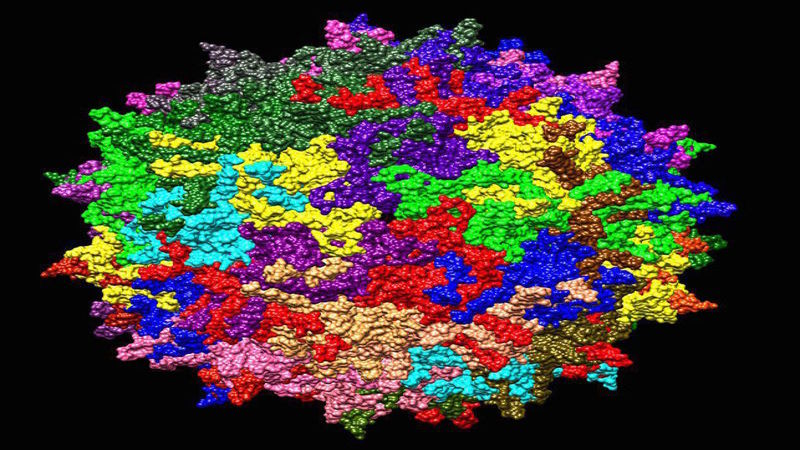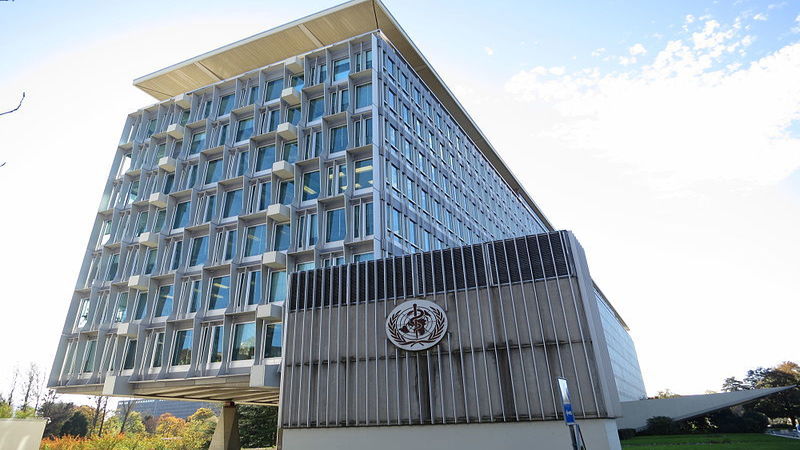
Medical research funders and NGOs agreed on new WHO clinical trial policies
The majority of medical research funders and international non-governmental organisations (NGOs) agreed to implement the new World Health Organisation (WHO) standards for clinical trials.
The firms include Indian Council of Medical Research, Norwegian Research Council, UK Medical Research Council, Médecins Sans Frontières and its research arm Epicentre, PATH, Coalition for Epidemic Preparedness Innovations (CEPI), Institut Pasteur, Bill & Melinda Gates Foundation and Wellcome Trust.

Discover B2B Marketing That Performs
Combine business intelligence and editorial excellence to reach engaged professionals across 36 leading media platforms.
According to the new policies, all the trials funded or supported by these organisations have to be registered and their results should be reported publicly.
Actinogen began enrolment in Phase II trial of Xanamem to treat Alzheimer’s disease
Australian-based biotech firm Actinogen Medical began patient enrolment and dosing in the Phase II XanADu clinical trial of Xanamem for the treatment of Alzheimer’s disease.
Developed in collaboration with Edinburgh University in Scotland, Xanamem is designed to block the excess production of cortisol in the brain.
The initiation of patient enrolment followed the approval from the Australian Therapeutic Goods Administration (TGA), the US Food and Drug Administration (FDA) and the UK Medicines and Healthcare products Regulatory Agency (MHRA).

US Tariffs are shifting - will you react or anticipate?
Don’t let policy changes catch you off guard. Stay proactive with real-time data and expert analysis.
By GlobalDataAbeona to initiate Phase I/II trial of ABO-102 in Australia to treat MPS IIIA

US-based biopharmaceutical company Abeona Therapeutics secured regulatory approval from the Australian Health Therapeutic Goods Administration to commence a Phase I/II clinical trial of its ABO-102 for the treatment of Sanfilippo syndrome type A (MPS IIIA).
ABO-102 (AAV-SGSH) is a gene therapy programme based on the adeno-associated virus (AAV).
The Phase I/II trial is to be conducted at the Adelaide Women’s and Children’s Hospital and is designed to assess the safety and efficacy of single, intravenous ABO-102.
Glenmark Pharmaceuticals to investigate GBR 1342 in Phase I trial for multiple myeloma
Indian pharmaceutical firm Glenmark Pharmaceuticals obtained clearance from the US Food and Drug Administration (FDA) for its investigational new drug (IND) application to commence a Phase I clinical trial of GBR 1342 to treat patients with multiple myeloma.
Based on the firm’s bispecific engagement by antibodies based on the T-cell receptor (BEAT) technology platform, GBR 1342 is a humanised monoclonal antibody (bsAb) currently being developed to trigger and redirect immune cells towards tumours.
The two-part Phase I trial will recruit patients who have received prior therapies.
Immunovaccine to study DPX-Survivac in Phase II combination trial for DLBCL

Canadian-based immuno-oncology company Immunovaccine is set to evaluate its DPX-Survivac in combination with a PD-1 checkpoint inhibitor and a low-dose cyclophosphamide in its Phase II clinical trial to treat measurable or recurrent diffuse large B-cell lymphoma (DLBCL).
DPX-Survivac was developed based on the firm’s DepoVax delivery platform. It contains survivin-based peptide antigens and is designed to induce a cytotoxic T-cell immune response.
Expected to recruit 25 subjects at five clinical sites in the country, the investigator-sponsored, non-randomised, open-label Phase II trial will assess the efficacy and safety of the combination in patients with survivin-expressing DLBCL.
Mithra and Fuji Pharma set to commence Estelle’s PK trial in ASEAN markets
Belgium-based Mithra Pharmaceuticals and Japan's Fuji Pharma were set to begin a pharmacokinetic (PK) ethnobridging trial of Estelle in Japanese and Caucasian women.
Mithra’s Estelle is an oral contraceptive product candidate formulated with 15mg of estetrol (E4) and 3mg of drospirenone (DRSP).
The single-centre, double-blind, placebo-controlled, randomised trial is designed to compare the PK profile of different dosages of E4, either alone or in combination with DRSP, in 48 Japanese and 48 Caucasian subjects.
Aimmune’s Phase III trial commenced enrolment to study AR101 for peanut allergy

Aimmune Therapeutics commenced patient enrolment in a Phase III RAMSES (ARC007) clinical trial of AR101 to treat peanut allergy.
AR101 is an investigational, biologic oral immunotherapy currently being developed for patient desensitisation.
The randomised, double-blind, placebo-controlled, real-life AR101 market-supporting experience study (RAMSES) will recruit a total of 440 patients aged between four and 17 at various sites in the US and Canada.
DrugDev and Informa partnered to enable easy site identification for clinical trials
DrugDev and Informa’s Pharma Intelligence vertical, Citeline, integrated their respective platforms to allow easy and efficient identification of ideal sites for conducting clinical trials.
Citeline’s Trialtrove and Sitetrove intelligence platforms were integrated with DrugDev’s unified clinical operations suite DrugDev Spark.
The information on study planning and site identification available through DrugDev Spark will be extended, with the incorporation of indexing information captured by Citeline to the universal site identifier known as DrugDev Golden Number.
Stealth began SBT-20's Phase I/II trial in Netherlands to treat Huntington's disease
Stealth BioTherapeutics began the Phase I/II CHALLENGE-HD clinical trial of SBT-20 in the Netherlands to treat patients with early stage Huntington's disease.
SBT-20 is an investigational tetrapeptide currently being developed to improve mitochondrial function for slowing down the neuronal degeneration and disease progression.
The two-part, randomised, double-blind, placebo-controlled Phase I/II trial is currently being conducted at the Centre for Human Drug Research (CHDR) and is designed to assess the safety, tolerability and efficacy of various doses of daily subcutaneous SBT-20 in adult patients.
Neurocrine’s Ingrezza failed to meet primary endpoint in Phase II trial for Tourette syndrome
US-based biotechnology firm Neurocrine Biosciences’ Ingrezza (valbenazine) failed to meet the primary endpoint in its Phase II T-Force GREEN clinical trial to treat Tourette syndrome.
Ingrezza is a small molecule inhibitor of VMAT2 believed to regulate nerve signalling by decreasing the dopamine levels released in the brain.
The pre-specified primary endpoint of the randomised, double-blind, placebo-controlled, multi-dose, parallel group trial was the change from baseline between the placebo and active groups as measured in the Yale global tic severity scale (YGTSS) at week six.






